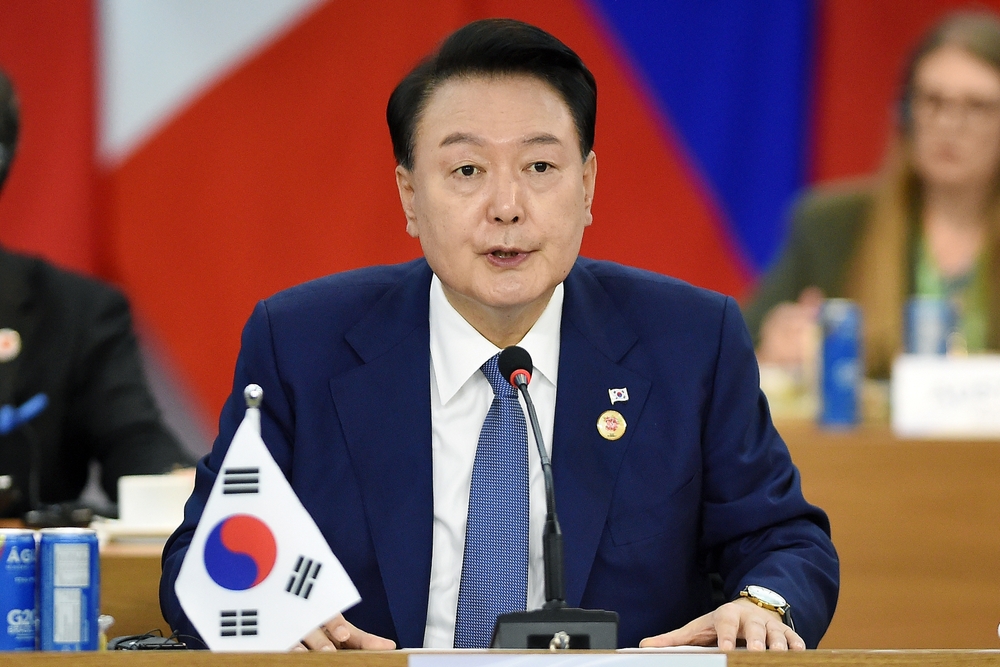In a landmark ruling, South Korea’s Constitutional Court unanimously voted to remove President Yoon Suk Yeol from office, ending a brief but controversial presidency marred by his decision to impose martial law. The verdict, announced on April 4, 2025, has sparked mixed reactions nationwide, underscoring deep political divisions.
Constitutional Court Verdict: Martial Law Unconstitutional
Acting Chief Justice Moon Hyung-bae, presiding over the eight-member court panel, declared Yoon’s actions unconstitutional, citing severe disruption to South Korea’s constitutional order. Yoon’s declaration of martial law in December 2024, despite lasting only six hours, plunged the country into political turmoil and economic instability.
“By declaring martial law in breach of constitutional provisions, the defendant resurrected past abuses of state power, significantly destabilizing society, politics, and diplomacy,” Moon stated in a nationally televised hearing. The court emphasized that the dismissal was necessary to uphold constitutional integrity.
Nationwide Reactions: Celebration and Anger
The ruling led to dramatic scenes across South Korea. Anti-Yoon protesters near the court cheered and danced, celebrating what they viewed as a victory for democracy. Streets in central Seoul quickly filled with demonstrators who marched peacefully, expressing relief and joy.
Conversely, Yoon’s supporters expressed outrage and disbelief, visibly shaken by the verdict. Gathered near the presidential residence, many wept, shouted, and angrily confronted media representatives, although organizers successfully called for calm, preventing escalation into violence.
A protest leader urged defiance, declaring, “Anyone who accepts this ruling and prepares for an early election is our enemy!” However, by the late afternoon, police reported no significant incidents or disturbances.
Political and Economic Implications
With Yoon’s removal, Prime Minister Han Duck-soo assumed temporary leadership, pledging to ensure public safety and a smooth transition to a newly elected administration. An early presidential election must be held within two months, but political analysts warn the campaign will likely exacerbate existing divisions.
Duyeon Kim, a senior analyst at the Center for a New American Security, noted, “It will be an uphill battle for the conservative party. A victory by Lee Jae-myung from the liberal Democratic Party could dramatically alter South Korea’s foreign policy direction.”
Surveys indicate Lee, the current leader of the opposition Democratic Party, holds an early lead despite ongoing legal challenges involving allegations of corruption.
Martial Law: Brief but Damaging
Yoon’s martial law order on December 3, 2024, quickly unraveled into chaos. Military forces sent to the National Assembly clashed with lawmakers and protesters, sparking memories of South Korea’s past military authoritarian regimes. Although the martial law decree was swiftly overturned unanimously by the Assembly, the political damage was irreversible.
Lawmakers accused Yoon of violating constitutional rights, abusing power, and suppressing democratic activities. Court testimonies revealed disturbing attempts to detain political opponents and block democratic processes, further eroding public trust in his leadership.
Criminal Charges and Ongoing Legal Battles
Yoon now faces significant criminal repercussions. He has been indicted for rebellion, a charge potentially punishable by life imprisonment or even death. Although initially arrested, he was released in March to await trial without detention. His removal from office strips him of presidential immunity, exposing him to additional criminal investigations, notably related to abuse of power.
In response to the verdict, Yoon expressed regret but avoided explicitly accepting the court’s decision. He reaffirmed his commitment to the nation, calling his presidency “the greatest honor” of his life. Meanwhile, his legal team fiercely criticized the ruling as politically motivated and “incomprehensible.”
The coming months will be pivotal as South Korea navigates this deep political crisis and prepares for a decisive election that will shape its domestic and international policies for years to come.


